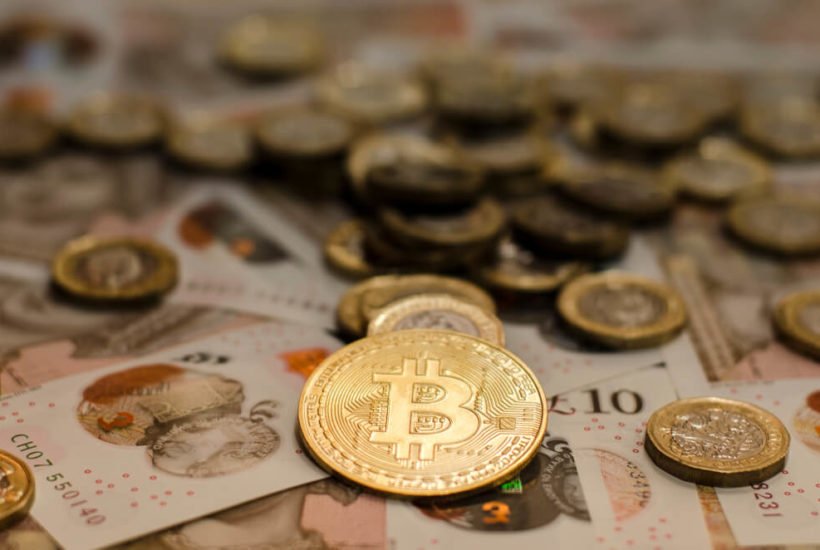Crypto
A look at the fate of EU’s crypto market under Brexit’s delay
All investors know that uncertainty traditionally breeds a stale market.

With the emerging presence of cryptocurrencies, one has to wonder if the same principle still holds. After all, these currencies are decentralized, and while governments regulate them, they’re not controlled by governments in the same way standard currency is. With the EU’s rejection of the U.K.’s most recent Brexit proposal, even the fate of the international money market seems unclear.
So where does that leave cryptocurrencies amidst Brexit’s delay?
1. Short-term consequences
Large world events like Brexit cause ripples in the market. When the event first happens, markets can flip wildly and then even out over time. It would be reasonable to expect the crypto market to do something similar. If a Brexit deal is reached, stock markets will likely flip wildly in a positive direction, while the opposite would be more likely if a deal is not reached. The British pound continues to rise, displaying investors’ hope that a deal will be reached.
While cryptocurrencies typically behave differently than normal currencies over time, they generally follow the same pattern in the short term. The issue becomes the timeline of the Brexit deal (or no deal) itself. The most recent deal put before the EU was turned down on March 19th, and the EU is running out of patience. The EU has extended the delay until the end of May, but this is the U.K.’s last chance to create a deal all parties can stand behind.
If a Brexit deal does get passed in the nick of time, it would help to reduce the chance of market volatility, since the U.K. will mimic the EU in much of the policy changes in the future. Any market will respond to a “business as usual” situation. If a deal is not reached by the May deadline, uncertainty will remain in how the U.K. can regulate cryptocurrency — or anything else for that matter — since it would have far more options and free reign apart from the EU if there’s no deal.
2. Long-term consequences
While the short-term consequences for cryptocurrency in a Brexit stock market will remain largely the same as the usual currencies, regardless if they reach a deal or not, the long-term consequences are far different depending on what happens after this most recent delay. Regular currencies will eventually even out from the market disruption during whatever happens with the Brexit deal, while cryptocurrencies come to a crossroads.
If the U.K. and EU do reach a deal before the May deadline, the value of cryptocurrencies may decrease due to the aggressive regulation that’s in play. The EU has been adopting increasingly aggressive regulatory legislation, such as the Anti-Money Laundering laws, that would hinder the growth of cryptocurrencies. A Brexit deal means that the U.K. will follow suit, which removes the chances of a major world power accepting cryptocurrency as a legal medium of trade.
If there’s no Brexit deal, which is quickly becoming the more likely scenario, the short-term consequences might be rough, but the long-term ones look much brighter. With the complete separation of the U.K. from the EU, the U.K. would be free to create its own legislation and regulation regarding cryptocurrencies apart from EU’s tough cryptocurrency laws and ultimately have the opportunity to position itself for the future of trade.

If the U.K. and the EU reach a deal before the May deadline, the value of cryptocurrency is likely to decrease. (Photo by Wit Olszewski via Shutterstock)
The complete and total separation of the U.K. from the EU could pave the way for the U.K. to recognize cryptocurrency as a legal tender, joining major nations such as Japan and China. Having major western power like the U.K. acknowledge cryptocurrency as a medium of trade would help to raise the value of cryptocurrencies across the board since the confidence of the U.K.’s government would stand behind the currency.
The ripple effect from the U.K. accepting cryptocurrency as a legal currency would only prove to support long term sustainability and success for the cryptocurrency markets around the world. Since the U.K. does plenty of trading with the other major western players, such as the U.S., it could encourage the rest of those nations to follow suit.
3. Crypto’s relationship with international currency
While the effects from major world events in both the cryptocurrency markets and traditional money markets typically mirror each other in the short term, cryptocurrency continues to have a complicated relationship with traditional money. At least in terms of Brexit, it’s becoming apparent that the growth of the cryptocurrency market relies on the decline of the traditional money market long term.
If the U.K. fails to reach a Brexit deal by the end of May and wants to position itself for the financial future, it would mean creating more blockchain partnerships and recognizing crypto as a legal currency, which eats into the traditional money market.
4. What to expect out of Brexit
Regardless of whether a deal is reached or not, the bottom line is that Brexit is a major world event with massive effects on the global stock market. To make smart decisions with a cryptocurrency investment, it’s important to pay close attention to other stock markets, especially in the context of how the crypto market interacts with a given stock market. The window for a Brexit deal is closing very quickly, and the U.K. continues to struggle with the prospect of a no deal, especially in light of the EU’s recent disapproval, which shouldn’t be ignored.
In the context of fiat currency markets, it becomes clear that the interests of the crypto market are inversely aligned. An increasingly likely no-deal Brexit could start the slow worldwide decline of fiat currencies — not to mention a major hit to Britain’s GDP — depending on how the U.K. would frame their regulation moving forward and make way for a new age of cryptocurrency.
It’s crucial to note that if no deal is reached by the deadline and the U.K. does have the ability to position itself as a crypto-friendly country, it could choose not to. The U.K. could still decide to mimic the EU in their heavy regulation of cryptocurrencies and ultimately hurt the market value, even though a no-deal would be the more favorable outcome. With the stability of Ireland hanging in the balance, it is not out of the question for the U.K. to try and at least pretend like there’s a deal.
As with any investment, it comes down to risk vs. reward and supply vs. demand. The outcome of Brexit may very well decide the fate of cryptocurrency for the foreseeable future, and investors will have to weigh that risk when deciding how to handle their investment amidst the uncertainty of Brexit.
(Featured image by Willy Barton via Shutterstock)
—
DISCLAIMER: This article expresses my own ideas and opinions. Any information I have shared are from sources that I believe to be reliable and accurate. I did not receive any financial compensation for writing this post, nor do I own any shares in any company I’ve mentioned. I encourage any reader to do their own diligent research first before making any investment decisions.

-

 Cannabis1 week ago
Cannabis1 week agoCannabis and the Aging Brain: New Research Challenges Old Assumptions
-

 Africa2 weeks ago
Africa2 weeks agoUnemployment in Moroco Falls in 2025, but Underemployment and Youth Joblessness Rise
-

 Crowdfunding5 days ago
Crowdfunding5 days agoAWOL Vision’s Aetherion Projectors Raise Millions on Kickstarter
-

 Fintech2 weeks ago
Fintech2 weeks agoFintower Secures €1.5M Seed Funding to Transform Financial Planning

























